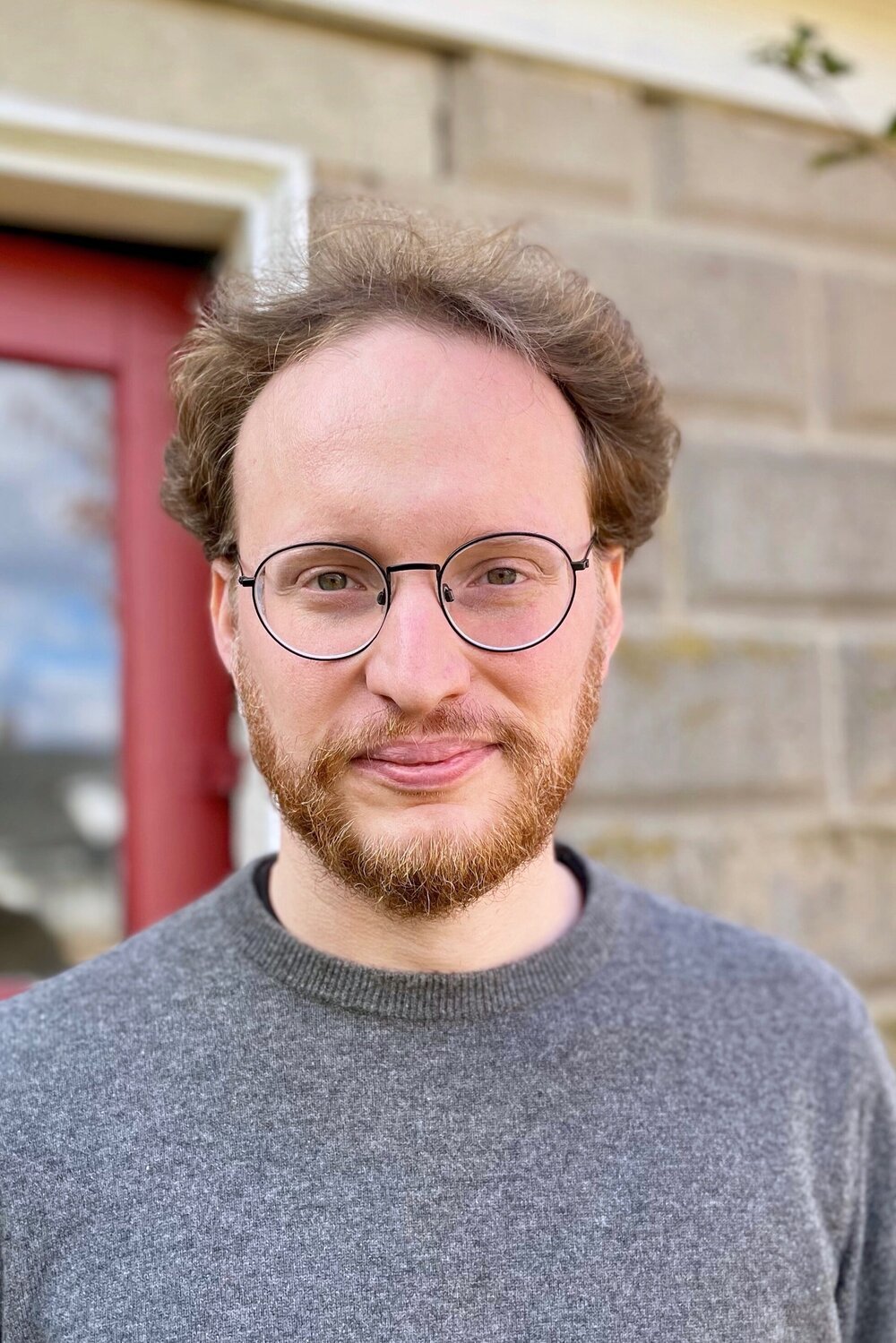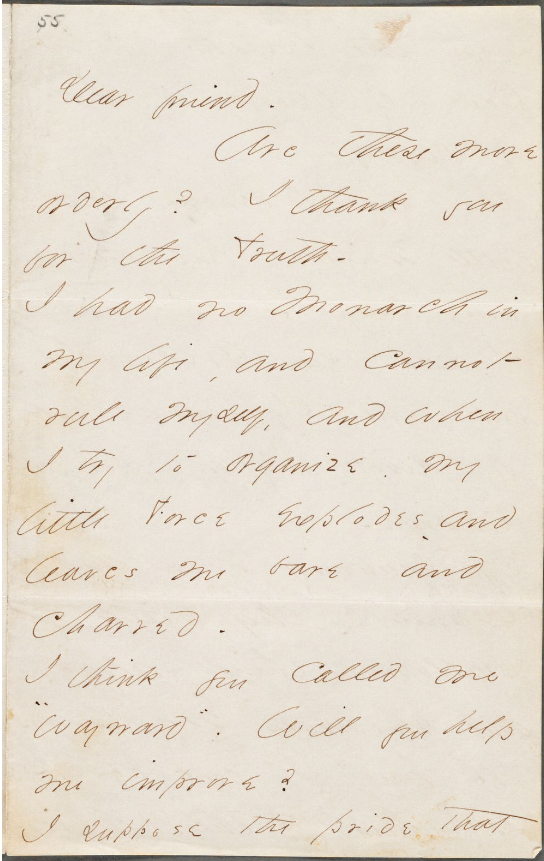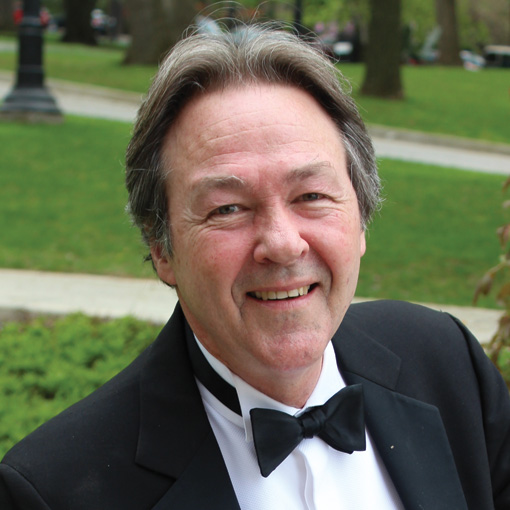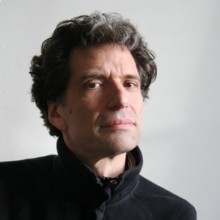New From Eric Nathan
Some Favored Nook

The 2023 release of Some Favored Nook is a project that brings together the talents of an impressive collective. Sonically weaving a web of cultural and societal connections, librettists Mark Campbell and Eric Nathan have adapted texts by Emily Dickinson and Thomas Wentworth Higginson. Messages penned hundreds of years ago still resonate quite clearly for the twenty-first century listener.
Composed and workshopped during Eric Nathan’s residencies at the Copland House, Yellow Barn, and the American Academy in Rome, the live premiere of this work was given in 2019 at the Nasher Sculpture Center in Dallas, Texas. Interestingly, Aaron Copland also set the words of Emily Dickinson to music, in the very place in which Nathan created parts of this project.
Eric Nathan found inspiration from Brenda Winapple’s book, White Heat: The Friendship of Emily Dickinson and Thomas Wentworth Higginson. Winapple reports how two strangers, presumably so different, defied odds and found a friendship of sorts. Winapple accounts Dickinson’s proclivity to be a reclusive poet, so much so that she was rather unknown during her day, having only published ten poems. Thomas Wentworth Higginson, quite differently, was a prominent essayist, minister, military commander, abolitionist, and supporter of women’s rights. Dickinson and Higginson wrote to each other for twenty-four years, but only met in person twice. Still, with the help of Mabel Loomis Todd, Higginson worked to posthumously publish the first edition of Emily Dickinson’s collected poetry.
Some Favored Nook is not a piece for the passive listener. One must engage and focus to truly benefit from the composition. Listening and experiencing the work almost becomes as active as does playing, singing, and, when being created, writing the piece requires.
Nathan’s work is composed in fifteen movements that are organized into three parts:

Some Favored Nook
| Part I | |
| I. To tell me what is true? | |
| II. The nearest dream recedes unrealized | |
| III. Could you tell me how to grow? | |
| IV. They shut me up in Prose | |
| V. My barefoot rank is better | |
| Part II | |
| VI. To see if we were growing | |
| VII. War feels to me an oblique place | |
| VIII. There suddenly arose | |
| IX. Emancipation | |
| X. All sounds ceased | |
| XI. There came a wind like a bugle | |
| XII. Attending to the wounded | |
| XIII. That shamed the nation | |
| Part III | |
| XIV. These are my introduction | |
| XV. My Wars are laid away in Books / No Prisoner be |
Various poems of Emily Dickinson appear throughout Some Favored Nook, accompanied by exchanges and commentary on Dickinson pulled from Higginson’s diaries and essays. Pulitzer Prize winning librettist Mark Campbell opens the work with the first correspondence between Dickinson and Higginson. Co-librettist Eric Nathan was focused on choosing texts that addressed, directly and obliquely, slavery and the American Civil War. It is an impressive feat how Campbell and Nathan have combined material spanning many years and from different formats into such a streamlined thread. Musically, however, the poems are not differentiated from other source material, which seems to be a bit of a disservice to the listener. The play within the play, as it were, can become a bit lost.
Part I introduces Nathan’s economy of composition. Silence quickly becomes as significant a texture as does sound. The piano is scored in the mid-to-high range, interjecting as if to eavesdrop, while leaving traces of dissonance and pitch references for the vocal forces.

Soprano Tony Arnold’s contributions open with a clear, beautiful tone, utilizing vibrato brilliantly to encourage energy within the dialogue. It quickly becomes clear why Arnold is an international contemporary ensemble guest with leading groups throughout the world and on faculty of the Peabody Conservatory and Tanglewood Music Center.
Within the text of the opening movement, Higginson mention’s Emily Dickinson’s lack of punctuation, instead using dashes to provide structure to her poems. It doesn’t seem as though when a dash is present in the libretto that it is given any significance with music. Citing Higginson’s commentary about punctuation, but not addressing the chosen punctuation with a leitmotif of sorts, seems to be a missed opportunity.
“The nearest dream recedes unrealized” may require a slight edit. Higginson’s last phrase of this movement listed in the accompanying booklet actually exists for the track of the next movement, “Could you tell me how to grow?” During the latter, Seth Knopp’s piano playing begins to substantially expand its range, somehow both grounding the work and heightening the drama. Knopp’s artistry regularly enriches his community as a faculty member of the Peabody Institute, a founding member of the Peabody Trio, and artistic director of both Yellow Barn and New Music at the Nasher.
Part I ends, overall, with two strong movements: “They shut me up in Prose” and “My barefoot rank is better.” The penultimate movement could leave the listener slightly confused in that the libretto offers, “They shut me up in Prose . . .” at a moment when the work is scored to be most active and regular to this point – the libretto and score seem to be in conflict. Any such conflict is quickly resolved as the composition dies out and makes a strong impact with the text, “That it manages to exist at all.” The final movement is host to such vulnerability. “My barefoot rank is better” could not possibly end in a more effective manner.
Part II is the strongest segment of the work. William Sharp’s baritone voice catapults the text into the listener’s soul. Sharp is no stranger to bringing new works to life, having participated in premiere performances and recordings by the likes of Leonard Bernstein, John Harbison, John Musto, Jon Deak, Libby Larson, David Del Tredici, Lori Laitman, Steven Paulus, Scott Wheeler, and David Liptak. Inspiring future generations as a pedagogue since 1977, Sharp has been on faculty of the Peabody Conservatory since 2002.

“To see if we were growing” abruptly changes textures, with the work scored in a strong and full manner that brilliantly continues to showcase Sharp’s voice. Images of war are referenced with a chattering telegram being received in the piano as a galloping calvary of soldiers assembles. Eric Nathan scores a meaningful arch of sound that positively milks content of all emotion possible.
The only moment where performance briefly dips occurs in the following movement, “War feels to me an oblique place.” Here, the voice and piano are not in agreement with respect to pitch, which is quickly adjusted, but nonetheless present. Nathan composes this movement in a less-aggressive manner than that which immediately proceeds it, but somehow manages to create an aesthetic still heavy with a gravitas of subject matter and meaning.
“There suddenly arose” seems to fluctuate with respect to the composition’s motivation and inspiration. At times, text painting is present, whereas other moments seem to divorce the text from that which Nathan has scored. What doesn’t fluctuate is the movement’s sense of home; a repeated pitch mesmerizes the listener, especially as other textures ultimately collapse into this solitarily sonic shelter. A strategic use of attacca connects to “Emancipation” and the repeated pitch which brought closure is now the point of departure as the work keeps unfolding. As relevant today as it was when penned by Dickinson in 1862, the text offers that, “Captivity is consciousness, So’s liberty.”
Eric Nathan flexes his Schubertian muscles, bringing together text and music to tell a story in “All sounds ceased.” The movement ends simply with the piano resonating those sounds that came before, depicting a smoke-laden battlefield. As has become expected by now, Sharp’s voice adds a magical tone quality and emotion to match. The consequences of the previous movement’s actions are powerfully answered in the next movement, “There came a wind like a bugle.” This landscape dissolves into a Copland-esque portrait, perhaps an homage, ending with an eerie acapella recitation of Dickinson’s poem, “A death-blow is a life-blow to some.”

Part II ends with “That shamed the nation.” Nathan scores opening dissonances which are patient and serve to somewhat heal the experience of this entire segment. Judgement seems to then be made from the bellowed howl of the baritone voice. The openness of the ending gestures have a profoundness that numbs the listener.
The compositional style that has been used throughout Some Favored Nook is starting to become exhausted by Part III. Only consisting of two movements, the loneliness of “These are my introduction” gives way to the final movement, “My Wars are laid away in Books/No Prisoner be.” Text and music shapes are repeated in both the soprano and baritone voices, with preference given to the affect created by Arnold. Balancing also seems to favor the soprano texture over that of the baritone; it is unclear as to whether this is a deliberate performance choice, a mere reality of the scoring, or a post-production decision. The absence of the piano may remind one of a Greek chorus, teaching the listener the lesson this parable of a song cycle has attempted to offer. After the forty-five-minute journey that is Some Favored Nook, the weight of its charge is profound.
In addition to composing, Eric Nathan serves as associate professor of music in composition and theory at Brown University. Nathan has won numerous prizes and awards. It is no wonder why leading orchestras, chamber groups, and conductors continue to schedule performances from his catalogue of works. Take advantage of the recently released recording of Some Favored Nook. The artistry is sure to move the heart and its message will hopefully stir one’s soul. Below is a teaser from New Focus, and Some Favored Nook is available on Spotify and Amazon for streaming.



